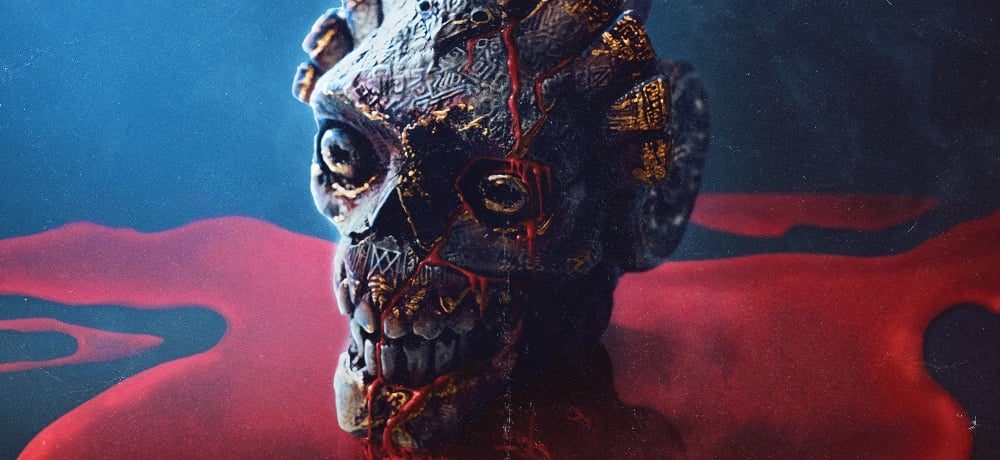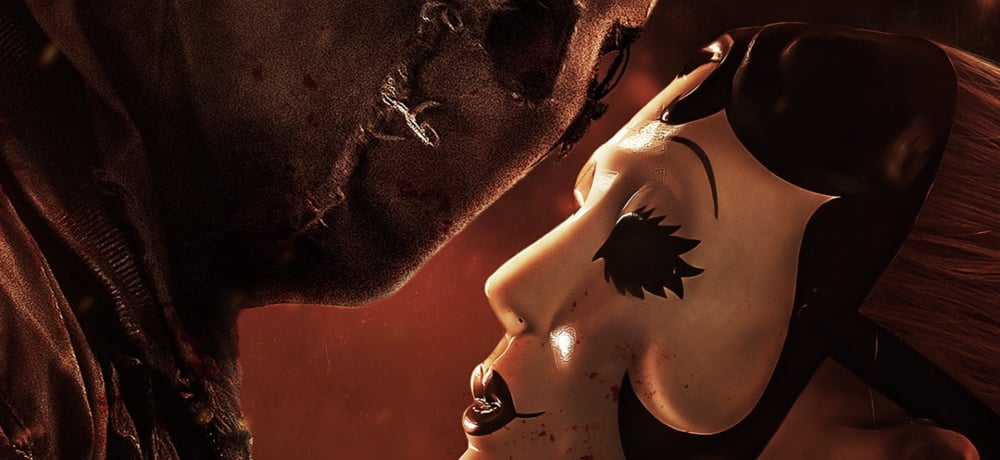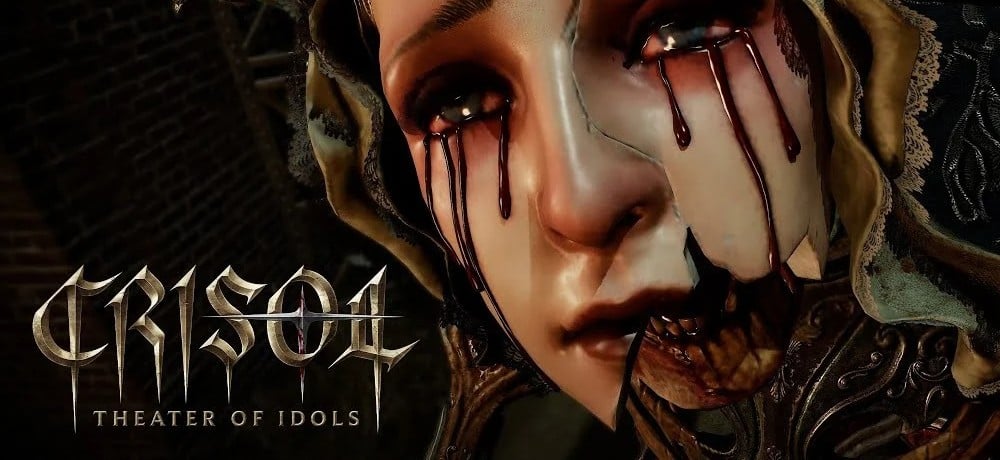





Whether you know him as the director of Critters 2 and Stephen King adaptations, author of original horror stories, passionate horror journalist, host of the Post Mortem with Mick Garris podcast, or creator of the Masters of Horror series, Mick Garris is one of the genre's biggest fans and most interesting voices, and he once again assembles a talented team of filmmakers (including Joe Dante, Ryûhei Kitamura, and Alejandro Brugués) for his latest project, Nightmare Cinema. With the horror anthology out now in theaters and VOD platforms from Cranked Up Films, Daily Dead had the great pleasure of speaking with Garris about Nightmare Cinema, including the long journey to get the film made, the importance of bringing together an international cast and crew, the making of his segment, "Dead," working with Mickey Rourke, and potential plans for a sequel.
Thanks for taking the time to talk with me, Mick, and congratulations on Nightmare Cinema. This was a lot of fun. I love horror anthologies and the talent that you assembled in front of and behind the camera on this is really impressive. When did the genesis of Nightmare Cinema come about? Had you been thinking about doing something like this for a long time?
Mick Garris: I've been working on doing something like this for a long time. This really began when Masters of Horror was not renewed. My original idea was to do this as a series, like Masters of Horror, but international. My original plan was to come up with a one hour, weekly anthology series, but each of them would be made in a different country by a filmmaker from that country, and really look at international horrors and bring that world of horror together under that umbrella. But that turned out to be a bit ambitious for most of the people in charge of the purses and checkbooks. So, that was not to be, but then there was the concept of doing it as a group of feature films, made the same way, and finally, after literally a dozen years of trying to get this off the ground in various incarnations, we were able to get together with a company that loved the idea of doing it as an anthology. So, it was intended to be international, which is why we have a Japanese director, a British director, a Cuban director, and Joe Dante and I as the two token Americans. But yeah, it literally took 12 years to get it off the ground.
Wow, that is a long journey. So, it wasn't an overnight thing.
Mick Garris: Oh, God. Nothing ever is. It's amazing how long things take to get off the ground. Desperation took seven years to get off the ground. Bag of Bones, I think, was seven or eight years. You just have to have tenacity and not leave it to other people to do the business for you.
That's amazing, too, because those projects have Stephen King's name attached to them, so if they're taking a long time, then anything can take forever to get made.
Mick Garris: Yeah, it has nothing to do with how good it is. It's what people are looking for in the marketplace at a certain time, and I gave up years ago on trying to judge that. All I can try to do is the best work I know how to do, and to get people together to do their best work and give them the freedom and flexibility to do that, which was the philosophy behind Masters of Horror, as well as behind Nightmare Cinema.
And when you got the team together on this, you gave them a lot of creative freedom. Did you give them any kind of guidelines for the atmosphere that you wanted to create or the tone, or did you just kind of let everyone do their thing and then bring it all together with The Projectionist wraparound segment?
Mick Garris: Exactly. I did exactly the opposite of encouraging them to do something a certain way. There was not a wraparound concept for it yet. There was a title, just Nightmare Cinema, and I encouraged them to do everything as deeply felt and personal and their way as possible. The point was getting together a group of filmmakers, each of whom had a very distinctive point of view, and set them free. Let the inmates run the asylum, and there's not a lot of time, not a lot of money, but there's a lot of creativity there and total creative control, and that was important. That's the only way I know how to get really talented people together to do something they want to do. Nobody made a fortune off of this movie. It's very independent, but we all got the chance to tell stories we wanted to tell and tell them the way we wanted to tell them.
Yeah, you certainly did. This is a great grab bag of so many different genres and I really enjoyed your segment, "Dead," which was a lot of fun. It has this really good exploration of someone who's got one foot in the afterlife, one foot in the mortal world, and then people tugging on their arms to either side. It's a lot of fun.
Mick Garris: Yeah, for good and bad reasons. You have a character tugging in one direction because of love, and the other one because of criminal need, and bad guy reasons, which we won't explain here, but yeah, thank you. A moral dilemma is a really good thing you can do in horror, in a very exaggerated and yet emotional sense.
Had you written the screenplay a while ago and were just waiting for the right opportunity, or is it something you came up with recently?
Mick Garris: I had written it as a feature film, but actually, the original idea would have been my third season Masters of Horror script, so that's how long ago that story came from, and I had written it before the series was picked up, as a one-hour episode, and then later turned it into a 90-minute feature that almost got made several times, and then stuck it in a drawer. I had adapted one of my books, Tyler's Third Act, into my segment for Nightmare Cinema, and the financing producers had seen the feature screenplay of Dead and said, "What do you think about that being your Nightmare Cinema segment?"
And I thought, "You know, let's do it. It's totally different from what everybody else is doing," and I think I loved the emo, which kind of all of the stuff I've done, the Stephen King and the like is very emotionally rich and deep, but Riding the Bullet really honed in on a way of telling a horror story that was not really common and it kind of shed into that, as well. So, they suggested I crunch it down to 25 or 30 pages, and so I did, and I'd been away from it long enough to not be precious about what I'd had to lose, and now I'm at the stage where, having lived with it as a segment of Nightmare Cinema so long, I don't even remember what I lost, what pages got thrown to the wind.
Well, it's just nice that it found life in some form, and I think it really works in that format, too, because there's still a lot in there, and it has such a pace, where once it gets going, it's pretty breakneck, sometimes, literally.
Mick Garris: Yes.
And Faly [Rakotohavana], the lead actor you worked with, is so good in this.
Mick Garris: I wanted somebody really unique and who could really play piano, and although he's faking it in the movie, but he's doing it believably. I did not want to have to cut to a stand-in hands. I wanted to be able to really have somebody who had the soul of a musician, and his look and everything, and part of the whole thing about Nightmare Cinema that was quiet but intentional is the mix of ethnicities. We have an all-Latino episode. We have a Japanese director, and most of the cast in Dead is African American and that was intentional. I didn't want your usual, 12-year-old, privileged white kid to be the classical pianist that you would expect, but to shake it up a little, and give you somebody who would be an unexpected child prodigy musician. It was really hard to find somebody right for the role, and now I can't imagine it without Faly. He's so good. He's a real pianist and he really carries that whole story, and that's not an easy thing for a 12-year old character to do.
He also holds his own against Mickey Rourke in The Projectionist segment, which I thought was so much fun, because it has this Creepshow vibe, and he's in the lion's den in that moment, so it's really fun to watch him act in that. I know you directed The Projectionist segment as well, and you brought in all these actors from all of these different segments, but first of all, did you write the role for Mickey, or did you know at any point early on that you would be able to get him for it?
Mick Garris: I didn't know it was going to be him, and in fact, I was thinking of Matt Frewer for the part, who's the actor I've worked with more than any other, but Mark Canton from Cinelou Films—they were the company that funded the movie and produced the movie with Good Deed and Cranked Up—Mark used to be the head of Warner Bros., and he was the head of Columbia, and a legend in Hollywood, and it was his idea. He said, "Well, what do you think about Mickey Rourke as the projectionist? He's a friend of mine. I think I can get him to do it and it would help us a lot to have an Academy Award nominated, very familiar movie star do this part."
That was hard to argue with. The idea was a little intimidating from Mickey Rourke stories I had heard and the like, but then I talked to Robert Rodriguez, who had a great experience with him on Sin City, and Mickey came in, and we had not met or even talked before he was there for his one, glorious day of shooting, and so he came in, ready to go, and we hit it off really well, and that doesn't always happen, I'm told, but it was great. He had a really good time, and then at 10 o'clock that night, he said, "Got to go," and that was the last we saw of Mickey Rourke, but yeah, I love what he did. Now, it's hard to imagine anybody else in the part.
If Nightmare Cinema does well enough, are there any plans for a Nightmare Cinema 2? Also, it seems like in this era of horror, where we have the legendary filmmakers that you've worked with and then there's this whole new generation of filmmakers, it seems like the world's ready for another shot at Masters of Horror. I just wanted to get your thoughts on any potentials that might be down the line if fortune allows it.
Mick Garris: Well, there won't be another Masters of Horror, just because of the rights issues and people involved that don't necessarily want to continue a relationship with us, but Nightmare Cinema is an opportunity to do. We are definitely in discussions about a sequel, but we're also talking about it becoming an anthology series, and that was the hope when we put the movie together in the first place, that we would be able to do that, and with Masters of Horror, a lot of them were legendary veteran filmmakers, but we also wanted to mix it up occasionally, with somebody like Lucky McKee.
Without having the name Masters of Horror, it frees us up to just get the great filmmakers of horror that aren't name brands, necessarily, and I would love to mix it up generationally. It was great to have Ryûhei and David Slade and Alejandro, as well as Joe Dante and myself, we gray-haired members, but yeah, to me, it's just the best filmmakers telling the best stories, and having as much of a mix as possible. Horror's exciting right now, probably more exciting than it's been in decades, if not ever, and my travels around the world expose me to a lot of the talent that is out there, and the different kinds of storytelling out there, and I would love to be able to chronicle that for an audience.
[Photo Credit: Above photo left from the Post Mortem with Mick Garris Facebook page.]